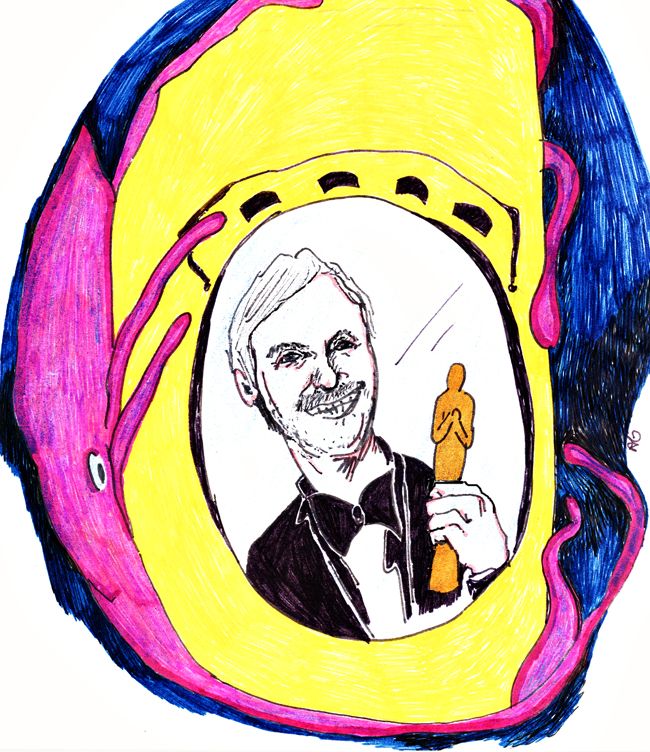
Director Journeys into The Abyss
Oscar-winning filmmaker James Cameron, who has directed some of the biggest movies of the past 25 years, including “Titanic” and “Avatar,” will be traveling deep under water into the Mariana Trench — something that hasn’t been attempted in more than 50 years. Using much more advanced technology than was available during the previous mission, Cameron hopes to uncover scientifically useful information using 3-D high definition cameras and huge 8-foot tall arrays of LED lights. The mission will be as dangerous as anything attempted by the heroes of his movies and will involve putting himself in a tiny one-seater submersible in near freezing water with pressures so strong that they’ll compress the craft by 2.5 inches.
Further tests at the Gran Sasso National Laboratory have shown that, despite recent reports, neutrinos do not travel faster than the speed of light and obey the laws of physics as we currently understand them. A report from the OPERA group at the same lab back in September had reported that the electrically neutral particles appeared to go faster than the universal speed limit and scientists have been hard at work trying to explain what went wrong. While this experiment, performed by the ICARUS group, doesn’t necessarily indicate where the previous one was in error, it does suggest that the conclusions may not be correct. Other groups are hard at work to replicate the results.
Russia and South Korea Work Together on Mammoth Project
Russian and South Korean scientists have agreed to join forces in order to bring the woolly mammoth back to life. The species, not seen on this planet for about 10,000 years, would be resurrected through advanced cloning technologies, which rely on finding well-preserved mammoth cells. These cells could be turned into an embryo, which would be implanted into a modern elephant (the mammoths’ closest living relative), who would then give birth to the creature. Other animals have been cloned using similar techniques, but this would be the first time that an extinct species could be brought back from the dead using modern science.
Fruit Flies Drown Sorrows in Alcohol
A recent experiment at the University of California, San Francisco, found that fruit flies that have recently had sexual encounters are less likely to eat food coated in alcohol than those who haven’t. The scientists think that this may be a result of how the brain handles pleasurable senses. At a certain point, the brain determines that the fly is happy enough and doesn’t need the alcohol to cheer up. Whether or not this kind of behavior applies to humans is a question for a
future study.
Man Prepares to Free Fall from Space
In an effort to push the limits of what is humanly possible, daredevil Felix Baumgartner plans to break the world record for highest free fall in history by more than 3 miles. Through the aid of a special suit — the air is much too thin and too cold for a human being to survive at that height — Baumgartner successfully and safely plunged 13 miles to Earth in a test run this past week. He is ready, if all goes according to plan, to break the sound barrier on his plunge from 23 miles up all the way back down to near the Earth’s surface before pulling the ripcord on his death-defying, record-breaking stunt.





















